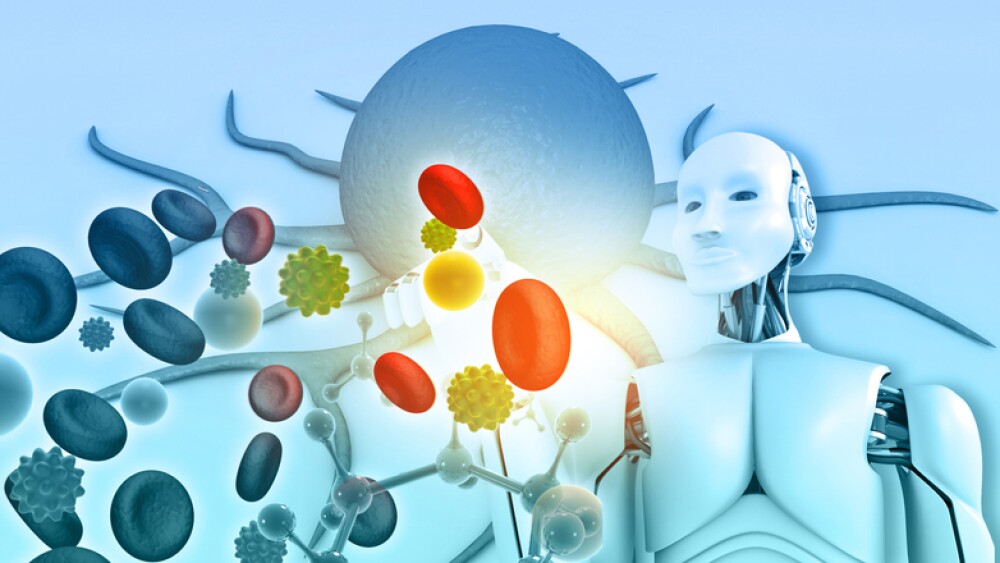Episona announced today that it is entering the consumer market with the first at-home, epigenetics-based test for evaluating male infertility.
Access to Seed test expands from fertility clinics to online orders |
| [18-October-2017] |
|
PASADENA, Calif., Oct. 18, 2017 /PRNewswire/ -- Episona Inc., an epigenetics information company focused on reproductive health, announced today that it is entering the consumer market with the first at-home, epigenetics-based test for evaluating male infertility. Consumers may now purchase Seed online and receive direct access to patient-friendly reports and complementary genetic counseling services from Gene Matters. Online requests for Seed will be evaluated by independent physicians, ensuring an experience that is easy, convenient and medically guided. "Since Seed was launched a year ago, more than 40 fertility clinics nationwide have begun offering the test. Patient interest and demand for Seed has also increased substantially," said Episona CEO Alan Horsager, PhD. "Men contribute to about half the cases of infertility, but they rarely go in for doctor's appointments. We listened to the feedback from our patients, and it is now possible to order Seed online and take the test at home, all before you set foot in a doctor's office." "Seed identified changes in the sperm's DNA that helped us better understand why our pregnancies were unsuccessful," added Hazel Thilak, who had twins in September 2017. "If Seed would have been available when we began treatment years ago, it would have saved us a lot of money." Patients ordering Seed online will receive a kit in the mail within 3-5 business days. Patients provide a semen sample and send it to Episona's CLIA-certified lab for evaluation. Within 3 weeks a detailed two-part interactive online report on the patient's risk for male factor infertility is sent to the consumer and to the ordering physician. These results can help patients make decisions about seeking advanced treatment, such as in-vitro fertilization (IVF). "Fertility treatment is expensive and emotionally draining, so I want my patients to have as much information as possible to make informed decisions about all of their options," said Dr. Paul Turek, medical director of The Turek Clinics and a scientific advisor to Episona. "As the only epigenetic test on the market for male factor infertility, Seed goes far beyond the traditional semen analysis to offer a depth of next-gen information about male fertility and embryo quality that to date has been unavailable." Seed examines over 480,000 regions on sperm DNA for abnormal methylation at different gene sites important to fertility. A relative risk is then assigned to each abnormal location for either male factor infertility or poor embryo development. Seed results can help identify issues involving sperm function and embryo development, which are not detected with currently available tests. If a patient receives positive results for epigenetic abnormalities, complementary genetic counseling will be provided through Gene Matters. "Epigenetics has the potential to revolutionize the way we see health and disease," said Jill Davies, co-founder and chief operating officer of Gene Matters. "Clinically, epigenetics is a novel and nuanced way of looking at the function of the DNA. Gene Matters' counselors have the expertise and experience to help patients understand how disruptions to their epigenome could impact their fertility." About Seed Seed was developed by a team of leading reproductive experts and computational biologists. The test's novel approach is based on the science of epigenetics. Epigenetics examines external or environmental factors such as aging, smoking, obesity, environmental exposure or even exercise that can cause changes to the layer on top of the DNA known as the epigenome. These modifications to the DNA alter how genes are expressed, which, in turn, can impact how genes function. Seed focuses specifically on DNA methylation on the epigenome by examining differences in methylation between known fertile sperm DNA and infertile sperm DNA. Seed examines over 480,000 regions on sperm DNA for abnormal methylation at different gene sites important to fertility. A relative risk is then assigned to each abnormal location for either male factor infertility or poor embryo development. All test samples are professionally handled at a CLIA Certified Lab. Seed has been evaluated in two clinical studies that both demonstrated clear correlations between epigenetic abnormalities and male factor infertility. The test has been used by more than 1000 fertility patients and is available at more than 40 fertility clinics throughout North America and online at Episona. About Episona Inc. Episona is an epigenetics information company focused on improving reproductive health outcomes. The company's first commercial product, Seed, evaluates epigenetic changes on DNA to predict the risk of male factor fertility and embryo quality. Epigenetics is the study of the environmental and external modifications to DNA that alter gene expression without changing the DNA sequence. The company was founded in 2013 and is based in Pasadena, CA.
View original content with multimedia:http://www.prnewswire.com/news-releases/episona-enters-consumer-market-with-epigenetics-test-for-male-infertility-300538689.html SOURCE Episona Inc. |




